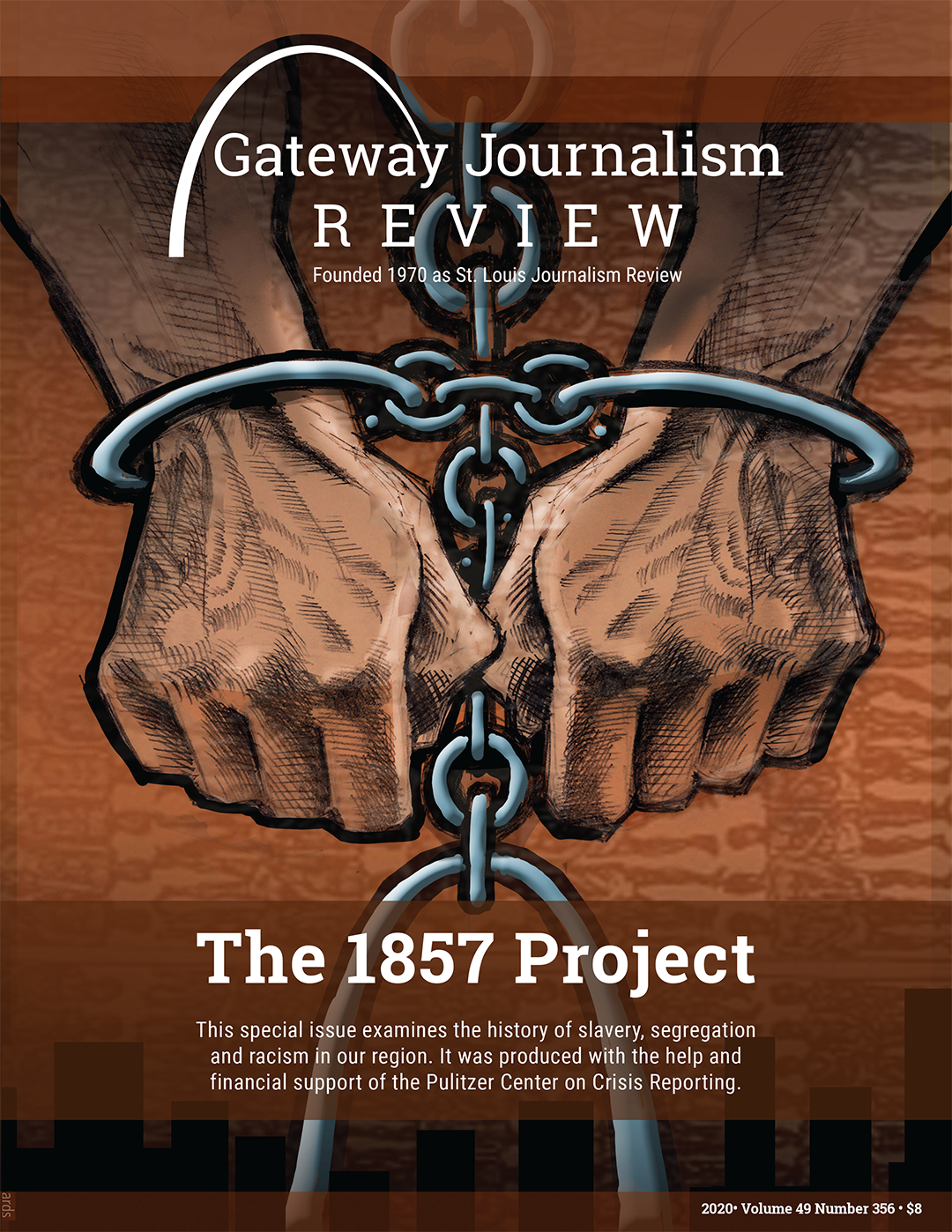
On November 17, 2020, educators gathered virtually for a conversation on The 1857 Project with the Pulitzer Center Education Team, and special guests William Freivogel, Amelia Blakely, and Christina Sneed.
Inspired by The 1619 Project from The New York Times Magazine, The 1857 Project from Gateway Journalism Review explores the history of race in St. Louis, Missouri and Illinois. It is called The 1857 Project because of the important events that happened in St. Louis that year, such as the Dred Scott decision and the Lincoln-Douglas debates. This 80-page spring issue explores the history of race in the land of Dred Scott through visual and written pieces from journalists, activists, students, and educators.
To begin the session, Pulitzer Center K-12 Education Intern, Mary Nance, reintroduced participants to curricular materials developed by the Center for The 1619 Project. Bill Freivogel, Pulitzer Center grantee and journalism professor at Southern Illinois University Carbondale, then introduced and described his process planning and researching The 1857 Project with a team of journalists. He spoke of his surprise while researching the Lincoln-Douglas debates, noting that he had thought of the debates as "the pinnacle of high minded civic engagement," before reading them. He shared an excerpt from Lincoln's speech on September 18, 1858 in Charleson, Illinois, where Lincoln stated "that there is a physical difference between the white and black races which I believe will forever forbid the two races living together on terms of social and political equality."
Amelia Blakely, reporting fellow, and contributor to the project, shared her research on lynchings in Missouri and Illinois. Originally from Southern Illinois, Blakely described how her research on the project helped her better understand the history of where she came from.
Christina Sneed, educator at University City High School in St. Louis, provided an overview of the curriculum connected to The 1857 Project and discussed how it has been implemented in the classroom this fall. She also discussed how the curriculum related to projects she taught in spring 2020 while introducing students to The 1619 Project. Sneed guided participants through a reading guide, extension activities, and a lesson plan on Freivogel's essay, "Extracting the Poison of Racism from America's Soul." She also described reading guides and extension activities that teachers could use to support students' exploration of the project.
Participants used a live-chat feature to reflect and ask questions during the Q&A portion of the webinar, which was facilitated by the Pulitzer Center Education Team. Participants also provided thoughtful responses to what they learned in a post-webinar evaluation. Read below for a few examples of participants' reflections on the session:
"I loved many of the comments from the speakers about the power that teachers—as well as journalists—have to reclaim the American narrative."
"I appreciate their commitment to this important work and their willingness to impart knowledge to the collective, so we might update our perspective regarding American history."
As Sneed presented and raised the question, "Who gets to write history?" Bill Freivogel shared another reflection in the chat: "I like this concept of national memory. This is where the 1619 and 1857 projects fit in. Many of the events of slavery and segregation had been forgotten or glossed over. These projects ensure these events are part of our national memory."
The Pulitzer Center invites educators to view the webinar at their convenience to discover tools for connecting their students with reporting on today's crucial issues.
Have you used The 1619 Project or The 1857 Project in your classroom? Please contact [email protected] to tell us about your experience and how we can support you, or if you have any other questions.







